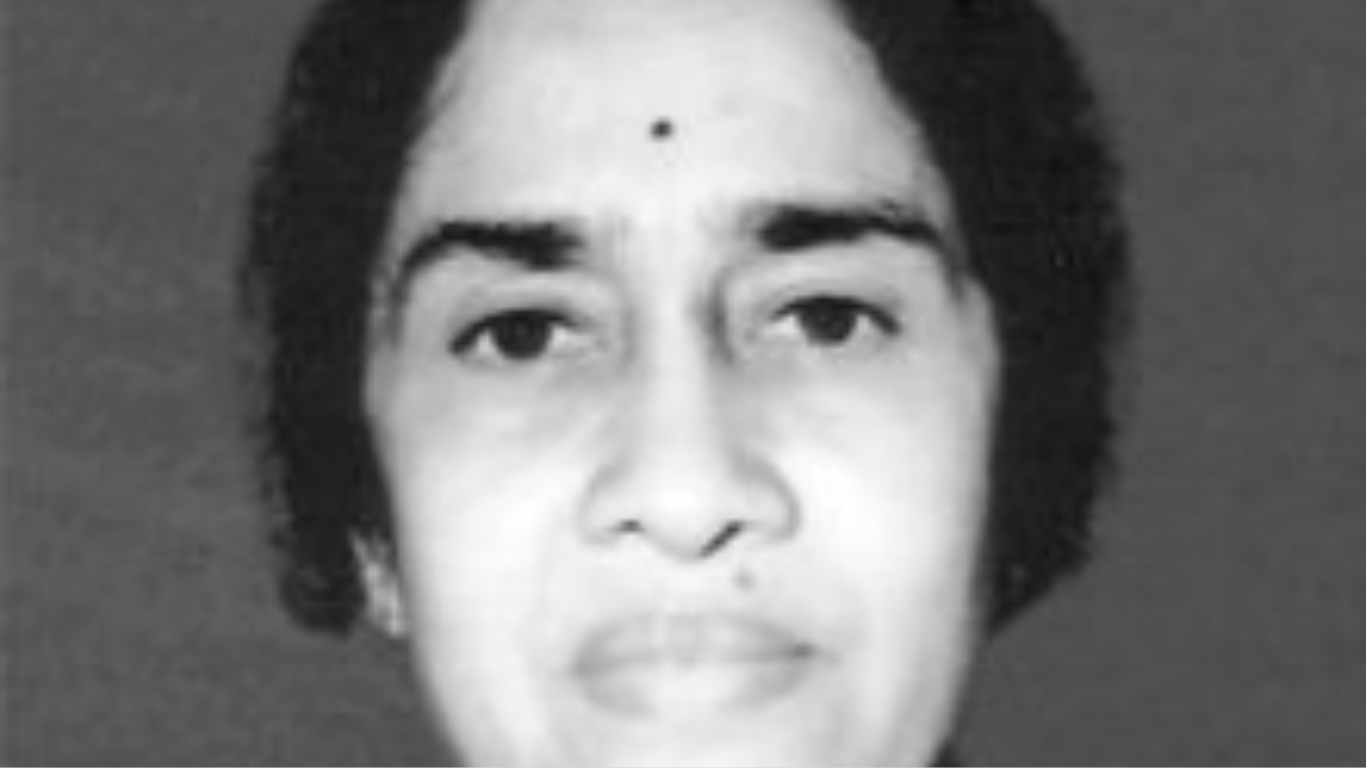Introduction
Kamala Sohonie, a name that might not be as widely recognized as it deserves, stands as a monumental figure in the realm of science, particularly in biochemistry. She broke barriers and set new standards for women in scientific fields, making significant contributions to research and paving the way for future generations. This comprehensive guide aims to shed light on her life, achievements, and enduring legacy, providing readers with a deep understanding of why Kamala Sohonie is a name worth knowing and celebrating.
Early Life and Education
Kamala Sohonie was born in 1912 in Indore, India. From an early age, she displayed an insatiable curiosity and a keen interest in the natural sciences. Her father and uncle, both chemists, likely influenced her passion for science. This familial environment, coupled with her own determination, set the stage for her remarkable academic journey.
Education Milestones
- Undergraduate Studies: Kamala Sohonie pursued her undergraduate studies at the prestigious University of Mumbai, where she majored in chemistry. Her academic excellence was evident from the start, earning her high distinctions.
- Overcoming Barriers: Despite her qualifications, Kamala faced gender-based discrimination when she applied for postgraduate studies at the Indian Institute of Science (IISc) in Bangalore. The institute’s then-director, Nobel laureate C.V. Raman, was initially reluctant to accept her because of her gender. Her persistence paid off, and she was eventually admitted, albeit on probation.
- Postgraduate Achievements: Kamala Sohonie not only met the rigorous demands of her studies at IISc but also excelled, completing her research on enzymes in plants and earning her MSc degree.
Trailblazing Career
After completing her MSc, Kamala Sohonie sought further education and research opportunities abroad. She secured a place at the University of Cambridge, where she worked under the guidance of Dr. Derek Richter. Her research at Cambridge culminated in her PhD in biochemistry, making her the first Indian woman to achieve this feat.
Significant Research Contributions
- Enzymology: Her pioneering work in enzymology, particularly her research on plant enzymes, was groundbreaking. She investigated the enzyme cytochrome c, contributing valuable knowledge to the field.
- Nutrition and Health: Upon returning to India, Kamala’s research focus shifted towards nutrition and health. She conducted extensive studies on the nutritional value of various food sources, including the role of vitamins and the impact of dietary deficiencies on health.
Challenges and Triumphs
Kamala Sohonie’s journey was not without challenges. She faced significant gender biases and institutional barriers throughout her career. However, her resilience and dedication to science saw her overcome these obstacles and emerge as a respected scientist.
- Gender Bias: Kamala often had to prove her worth in male-dominated environments. Her success at IISc and Cambridge demonstrated her exceptional capabilities and helped pave the way for more women in science.
- Institutional Barriers: Securing positions and funding for research was often difficult. Despite these challenges, Kamala remained steadfast in her commitment to scientific inquiry and education.
Legacy and Impact
Kamala Sohonie’s contributions extend beyond her research. She played a vital role in inspiring and mentoring future generations of scientists, particularly women. Her legacy is celebrated in various ways:
- Educational Initiatives: Kamala was passionate about education and worked towards improving science education in India. She was instrumental in setting up various scientific programs and institutions.
- Recognition and Awards: Although recognition was slow in coming during her lifetime, Kamala Sohonie has posthumously been honored with various awards and accolades for her contributions to science and society.
Personal Life and Values
Kamala Sohonie’s personal life was marked by her deep commitment to her family and community. She balanced her professional and personal responsibilities with grace, often advocating for the importance of work-life balance.
- Family Support: Her family’s support was crucial in her journey. Kamala often acknowledged their role in her success.
- Community Engagement: Beyond her scientific endeavors, Kamala was actively involved in community service, advocating for women’s education and empowerment.
In Her Own Words
Kamala Sohonie’s reflections on her journey offer valuable insights into her character and philosophy. She often spoke about the importance of perseverance, the pursuit of knowledge, and the need to break down barriers for future generations.
- Quotes: “Science knows no gender. It is the dedication and passion for discovery that truly matter.”
- Interviews: In various interviews, Kamala emphasized the importance of creating opportunities for women in science and the need for institutional support.
The Kamala Sohonie Foundation
In honor of her contributions, the Kamala Sohonie Foundation was established to support budding scientists, particularly women. The foundation offers scholarships, research grants, and mentorship programs aimed at fostering scientific talent and promoting gender equality in STEM fields.
- Scholarships: Providing financial support to women pursuing higher education in science.
- Research Grants: Funding research projects that align with Kamala Sohonie’s fields of interest.
- Mentorship Programs: Pairing young scientists with experienced mentors to guide their careers.
Celebrating Kamala Sohonie: Events and Honors
Kamala Sohonie’s legacy is celebrated through various events and honors. Annual lectures, seminars, and awards named after her continue to inspire and recognize excellence in science.
- Annual Lectures: Celebrating her contributions through lectures that highlight advancements in biochemistry and related fields.
- Awards: Recognizing outstanding contributions to science by women, perpetuating Kamala’s spirit of excellence and dedication.
Future Prospects and Continuing Her Legacy
The future of science in India and beyond can greatly benefit from Kamala Sohonie’s legacy. Encouraging young women to pursue careers in STEM, fostering inclusive educational environments, and continuing to break down barriers are essential steps.
- Encouraging STEM Careers: Promoting STEM education among young women and providing them with the resources and support needed to succeed.
- Inclusive Education: Ensuring that educational institutions adopt inclusive policies that support diversity and equality.
- Breaking Barriers: Continuing the fight against gender bias in science and promoting equal opportunities for all.
Conclusion
Kamala Sohonie’s life and work exemplify the power of perseverance, the importance of breaking down barriers, and the impact one individual can have on the world. Her legacy continues to inspire scientists and students alike, reminding us of the importance of dedication, passion, and the relentless pursuit of knowledge. As we celebrate her achievements, we are also reminded of the work that remains to be done in creating a more inclusive and equitable scientific community.
Unique FAQs
Who was Kamala Sohonie?
Kamala Sohonie was a pioneering Indian biochemist who made significant contributions to enzymology and nutrition research. She was the first Indian woman to earn a PhD in biochemistry.
What were Kamala Sohonie’s major contributions to science?
Her major contributions include pioneering research on plant enzymes, particularly cytochrome c, and extensive studies on the nutritional value of various foods and the role of vitamins.
What challenges did Kamala Sohonie face in her career?
She faced significant gender bias and institutional barriers throughout her career, including initial rejection from the Indian Institute of Science due to her gender.
How is Kamala Sohonie’s legacy being honored today?
Her legacy is honored through the Kamala Sohonie Foundation, annual lectures, awards, and various educational initiatives aimed at promoting STEM careers for women.
Why is Kamala Sohonie’s work important?
Her work is important because it not only advanced scientific understanding in biochemistry and nutrition but also paved the way for future generations of women in science, promoting gender equality and inclusivity in STEM fields.



